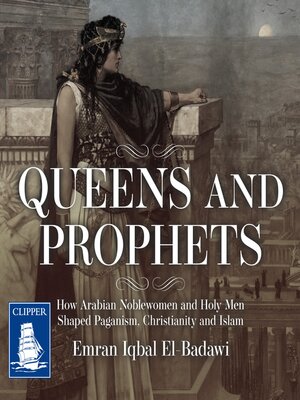Queens and Prophets
audiobook (Unabridged) ∣ How Arabian Noblewomen and Holy Men Shaped Paganism, Christianity and Islam
By Emran Iqbal El-Badawi

Sign up to save your library
With an OverDrive account, you can save your favorite libraries for at-a-glance information about availability. Find out more about OverDrive accounts.
Find this title in Libby, the library reading app by OverDrive.



Search for a digital library with this title
Title found at these libraries:
| Loading... |
Contrary to popular assumption, Arab women were instrumental in shaping world history. Between Rome's intervention in the Arabian Peninsula and the Arab conquests, noblewomen ruled independently, conducting trade and making war. Their power was often celebrated as queen, priestess and goddess. With time they delegated power to the most important holy men of their age, influencing Arabian paganism, Christianity and Islam forever.
Empress Zenobia and queen Mavia supported bishops Paul of Samosata and Moses of Sinai. Paul was declared a heretic by the Roman church. Moses began the process of mass Arab conversion. The teachings of these men survived under their queens, setting in motion seismic debates that would fracture the early churches and lay the groundwork for the rise of Islam. In Mecca, lady Khadijah used her wealth and political influence to employ a younger man then marry him against the wishes of dissenting noblemen. Her husband, whose religious and political career was influenced by her, was the prophet Muhammad.
Long overdue, Queens and Prophets is a landmark exploration of the legacy of female power in late antique Arabia.
Empress Zenobia and queen Mavia supported bishops Paul of Samosata and Moses of Sinai. Paul was declared a heretic by the Roman church. Moses began the process of mass Arab conversion. The teachings of these men survived under their queens, setting in motion seismic debates that would fracture the early churches and lay the groundwork for the rise of Islam. In Mecca, lady Khadijah used her wealth and political influence to employ a younger man then marry him against the wishes of dissenting noblemen. Her husband, whose religious and political career was influenced by her, was the prophet Muhammad.
Long overdue, Queens and Prophets is a landmark exploration of the legacy of female power in late antique Arabia.






